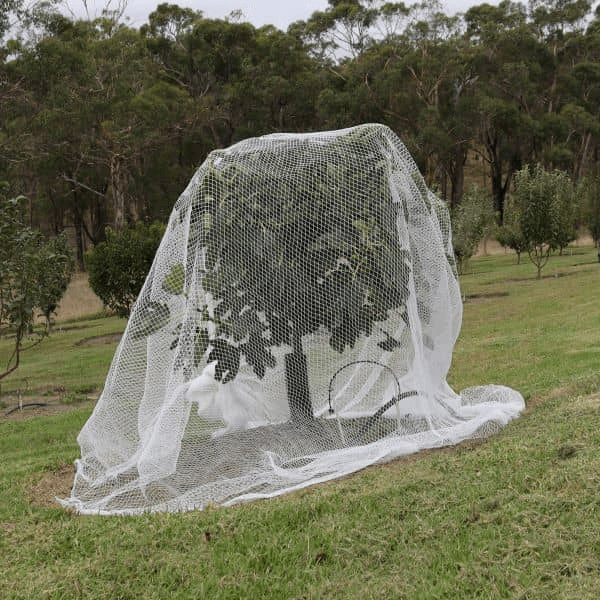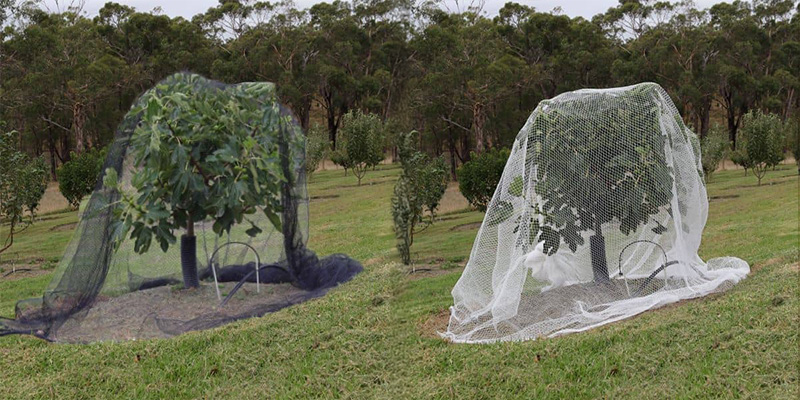Protecting crops, fruit trees, and gardens from birds is a top priority for gardeners, farmers, and vineyard owners. Birds can cause significant damage to produce, often pecking at fruit before it’s ripe or stripping entire plants bare. One of the most common and effective methods of preventing this damage is bird netting. But like any solution, it comes with both advantages and disadvantages.
 By knowing the pros and cons of using bird netting, you can be better prepared. Let’s explore them.
By knowing the pros and cons of using bird netting, you can be better prepared. Let’s explore them.
Pros of Bird Netting
Highly Effective Bird Deterrent
- Bird netting serves as a physical barrier, preventing birds from landing on or pecking at plants and fruit.
- It is widely regarded as one of the most reliable methods for deterring birds in both residential gardens and commercial farms.
Protects a Wide Range of Plants
- Ideal for protecting fruiting plants like grapes, berries, cherries, and tomatoes, which are common targets for birds. Learn more about how to protect grapes and berries from birds using bird netting.
- Also effective for covering young seedlings and vegetable patches to prevent bird damage during early growth stages.
Long-Term, Reusable Solution
- High-quality bird netting, especially UV-stabilised types, can last for several seasons when stored correctly after use.
- It’s a cost-effective investment over time, reducing the need to replace netting every year.
Versatile and Scalable
- Comes in different mesh sizes, including small mesh options, which are safer for wildlife.
- Available in the two most popular colours, black and white bird netting.
- Available in rolls, pre-cut sizes, and netting kits to suit everything from backyard plants to commercial crops.
 Safe for the Environment (When Used Correctly)
Safe for the Environment (When Used Correctly)
- Reduces the need for harmful chemical bird deterrents or sonic repellents.
- Wildlife-safe netting prevents harm to birds and other animals, particularly when tensioned properly and regularly checked.
Helps Reduce Crop Loss
- Protects your investment in seeds, time, and labour by ensuring that fruit and vegetable yields aren’t lost to bird activity.
- Particularly beneficial for commercial growers, where even a small percentage of loss can affect revenue.
Cons of Bird Netting
Risk of Trapping Wildlife
- If netting is not installed correctly or uses large mesh, birds and other animals can become entangled.
- Improper use may cause injury or death to non-target species, making wildlife-safe netting a critical consideration.
Can Be Labour-Intensive to Install
- Setting up netting over large trees, rows of plants, or entire garden beds can be time-consuming.
- Often requires additional infrastructure like hoops, stakes, or support frames for effective coverage and tension.
Requires Regular Maintenance
- Over time, exposure to sun, wind, or animals can tear or displace netting.
- Regular inspections are needed to identify and repair damage to maintain protection.
May Limit Pollination Access
- When netting is draped over flowering plants, it may block bees and other pollinators from accessing blooms.
- It’s important to remove or adjust netting during flowering periods if pollination is necessary for fruit development.
Is Bird Netting Right for You?
Bird netting remains one of the most effective and humane methods of protecting your produce. If you’re growing crops that are particularly vulnerable to bird damage, like grapes, blueberries, or strawberries, netting can save your harvest. However, it requires thoughtful installation, periodic maintenance, and a commitment to using wildlife-safe practices.
If you’re looking for a cost-effective, eco-conscious, and reusable method of bird control, bird netting is well worth considering.
At Sage Horticultural, you can find bird netting in different mesh sizes, in roll and cut to length, available in black and white.